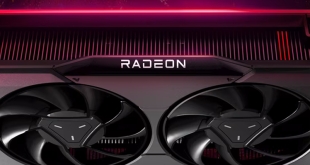Taiwan Semiconductor Manufacturing Co. this week confirmed that it has a team of engineers working on a manufacturing process that will succeed 10nm fabrication technology towards the end of the decade. While the company did not reveal details about its sub-10nm process, it said that it considers various options for it, including new lithography tools, transistor structures and materials.
“We are working on future platform technology development,” said Suk Lee, senior director of design infrastructure marketing division of TSMC in an interview with Cadence. “We have a team working on the next generation after 10nm. Those technologies are going to be offered in the 2017 to 2019 period. We do not anticipate Moore's Law is going to slow down anytime soon.”
Back in February Intel Corp. and Samsung Electronics confirmed that their research and development (R&D) teams are already working on 7nm manufacturing technologies that will be used to make highly-sophisticated computer chips. Intel confirmed that it was looking at all-new materials for its 7nm production process. Recently rumours emerged that the chipmaker is working with Honeywell, a multinational conglomerate company with a lot of expertise in chemistry and high tech, on the materials for its 7nm manufacturing tech. Samsung Electronics said that it was considering switching to a new transistor structure from FinFET/tri-gate. According to the company, gate-all-around FETs will be viable at 7nm and beyond. Samsung also implied that it would look at new materials for its 7nm fabrication process as well.
TSMC constantly makes updates regarding progress of its preparations to manufacturing using 10nm fabrication process and makes no secret that its process technology options are rather flexible. For example, TSMC is working with ASML, a leading maker of semiconductor manufacturing equipment, on a mid-node insertion of extreme ultraviolet lithography (EUV) at the 10nm logic node, which is expected to happen in late 2016. However, the company has always been tight-lipped on its processes beyond 10nm. In fact, the company even does not want to talk about exact feature size of the process.
“I do not want to make any comment on a specific technology node number,” said Mr. Lee.
But while we do not know what is exactly TSMC developing, the director of design infrastructure marketing division of TSMC revealed that the company is – just like its rivals – considering new materials and new transistor structures for its sub-10nm fabrication process.
“We are looking at advanced materials, different kinds of transistor technologies,” said Mr. Lee.
![]()
In fact, keeping in mind that TSMC definitely wants to use EUV lithography at some point, it is more concerned about tools rather than transistor structures or materials. Obviously, the company is working in different directions and at some point will make decisions regarding exact materials and transistor structures for its sub-10nm process tech. However, the EUV-related challenges preserve the company from making any announcements today.
“But the immediate next big challenge has to do with continuing the ability to do patterning based on existing light sources,” stated the high-ranking TSMC rep. “At 10nm, no one is dependent on EUV. We have set up our 10nm technology so that when and if EUV comes on line we can take advantage of it. We continue to work with ASML on EUV tools. The technology itself is very complex. We need to get to a point where there's sufficient wattage and uptime so there are significant wafer volumes.”
Discuss on our Facebook page, HERE.
KitGuru Says: 7nm process technology will not be used for commercial chips until at least 2019. However, three leading semiconductor companies – Intel, Samsung and TSMC – are already developing manufacturing processes to produce chips for your 2020 smartphone, tablet and PC.
 KitGuru KitGuru.net – Tech News | Hardware News | Hardware Reviews | IOS | Mobile | Gaming | Graphics Cards
KitGuru KitGuru.net – Tech News | Hardware News | Hardware Reviews | IOS | Mobile | Gaming | Graphics Cards


